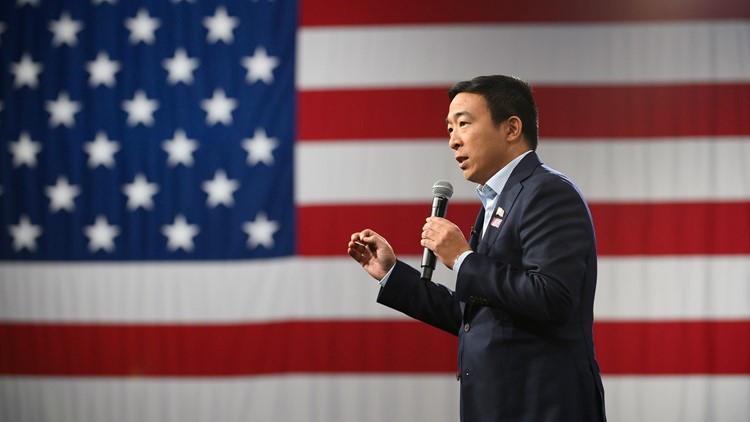(CNN) — Democratic presidential candidate Andrew Yang raised more than $16.5 million in the last three months of 2019, surpassing his third quarter haul by $6.5 million, his campaign announced Thursday.
Yang’s fundraising, powered by a devout grassroots supporter base known as the Yang Gang, has turned the once longshot candidate into a fixture on the debate stage who is now polling better than most of his Democratic competitors. In a statement, his campaign said 400,000 donors have now given to his White House bid and that his total number of contributions is now more than $1 million.
The businessman-turned-politician also had an impressive day on December 31 — the fourth quarter’s final day — which the campaign said was their “highest single-day haul with more than $1.3 million” raised.
While Yang’s new record will allow him to “devote resources toward TV and digital ads, on-the-ground staff, and campaign infrastructure,” his latest numbers are significantly lower than those from Vermont Sen. Bernie Sanders, one of the race’s leading candidates who raised more than $34.5 million during the final three months of 2019, and Pete Buttigieg, the former mayor of South Bend, Indiana, who brought in $24.7 million.
Other Democratic candidates have yet to release their new numbers. President Donald Trump, meanwhile, raised $46 million in the fourth quarter, his campaign announced Thursday.
“What we have achieved together to date through the humanity first values of this campaign, now sets us up to compete through the early-state primaries, Super Tuesday, and beyond,” Yang’s campaign chief Nick Ryan said in the statement.
Yang, who officially launched his presidential bid in 2017, was an afterthought in the Democratic field until recently, largely dismissed by his Democratic opponents and party operatives. But Yang has rallied a coalition of liberal Democrats, libertarians and some disaffected Republicans around a series of distinctive policy positions, namely his so-called Freedom Dividend, a plan to give every American adult $1,000 a month universal basic income that Yang argues would alleviate a host of social ills and eradicate poverty.



